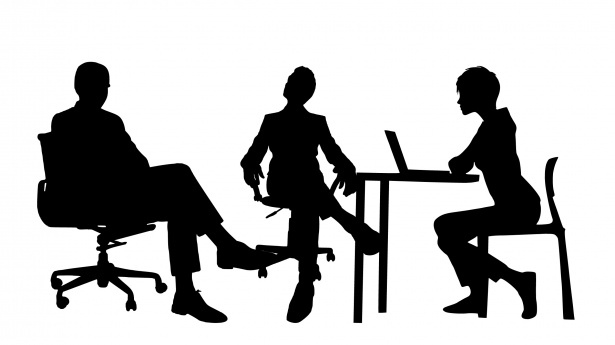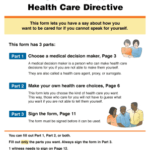Between 21 and 40 days after you file for chapter 7 bankruptcy, you’ll have a meeting of creditors, also known as the “341 hearing”. (It is called this, because this meeting occurs pursuant to 11 U.S.C. § 341 of the Bankruptcy Code.) If you have a good attorney, this meeting is not going to be as scary as you think it will be. In preparation for this meeting, your attorney will have reviewed your circumstances and asked you detailed questions about your situation, your property and your income and will have looked for any problems that needed to be highlighted and discussed; all this is done before your paperwork was ever filed with the court. The 341 meeting will be relatively quick—in fact, most meetings last less than five minutes.
This routine meeting is a mandatory meeting that is handled by the chapter 7 trustee assigned to your case pursuant to 11 U.S.C. § 701, 704. Failure to appear will result in the trustee asking the court to dismiss your case. 11 U.S.C. § 343.
The bankruptcy court will mail you a notice about the meeting of creditors and will tell you the time and place to meet for this meeting. This notice is typically sent two to three weeks before the hearing date. Your attorney should contact you prior to the meeting to gather documents the trustee will require. These documents generally include a copy of your most recently filed tax returns, a recent pay stub, bank statements and other financial account statements that cover the month of your petition filing date, and a copy of your drivers license and social security card (or W2 or other document showing your social security number on it).
In advance of the meeting, the trustee will have reviewed your bankruptcy paperwork and will conduct an independent search for assets you own to ensure everything that should have been disclosed in the bankruptcy paperwork was disclosed. They’re pretty thorough in doing their research. For example, they will check with the Division of Motor Vehicles (DMV) for any vehicles you own or have co-signed for, the County Recorder’s office for land and houses you may own, they’ll check Facebook marketplace, EBay and other online sources to see if you’ve listed anything for sale that you should have disclosed in your paperwork, etc. Because this research was done in advance, the actual meeting will therefore be fairly simple.
We also always call our clients prior to the meeting to get them ready.
Your Turn
At the meeting, a number of other people who have filed for bankruptcy will be there for their own creditors’ meeting. At the allotted time, the trustee will do roll call and then make some opening remarks. When your case is finally called, you and your attorney will be asked to come up and sit near the front of the meeting room across from the trustee. The trustee will swear you in and ask for your identification. The trustee will then start asking you questions. Your attorney will ensure the trustee doesn’t ask questions that are outside the scope of the trustee’s permissible inquiry. Some questions include:
- Did you have a chance to review the bankruptcy paperwork before you signed them?
- Is the signature on the paperwork your own?
- Are there any changes you need to make to your paperwork?
- Did you disclose all of your assets?
- Did you disclose all of your liabilities?
- Is there anything you forgot to disclose that you need to tell me about?
- Do you have any domestic support obligations?
- Is the copy of the tax return you provided through your attorney a true and correct copy of the most recently filed tax return?
The trustee will take a few minutes asking these and related questions. He/she may ask about how you valued big ticket items such as a vehicle or a house. The trustee will review your bank statements to see if you had funds in your accounts at the time your case was filed. He/she will also check to see if there are any weird withdrawals from your bank account and have you explain them to make sure you aren’t hiding money. Whenever there is anything odd in your bank statements or in your paperwork, the trustee will likely ask you to explain them or to gather additional documents that might explain those oddities. Again, because the trustee will have done his/her research for assets and will have reviewed your paperwork prior to the meeting, your actual meeting will be fairly quick.
Search for Unexempt Assets
One of the main purposes of this meeting is for the trustee to see if you have any assets that are not protected by state or federal law that they can take and sell. Your attorney will have reviewed your situation with you before the bankruptcy case was ever started to see if you had assets that could be an issue. They will have discussed your options regarding those assets so that any surprises at the meeting can be avoided. Most chapter 7 bankruptcies are no asset cases; this means the trustee, in most chapter 7 cases, doesn’t feel there are any assets worth enough money for him/her to sell those assets and make a meaningful distribution to unsecured creditors.
Creditors Come Forward
When the trustee finishes with his/her questions, he/she will ask if there are any creditors present who would also like to ask you questions. Creditors will then have the opportunity to come forward and ask you questions about loans you have with them. If there is collateral involved, they may ask about the condition and location of the collateral; they’ll ask if you want to keep the collateral and continue making payments on it or if you’d prefer to give back the collateral to them and include the underlying debt in the bankruptcy. It is common for the Internal Revenue Service (IRS) and the state taxing authority to appear at the meeting. In Utah, a furniture company that is five times bigger than any other local lending institution called RC Willey will oftentimes send over a representative to discuss any furniture loans you may have with them; they’ll give you some options. Most creditors, however, don’t bother to attend the meeting. They prefer to simply read the report the trustee files on your case after the meeting is over.
Once the trustee finishes your meeting, they’ll simply say “that concludes your hearing.” You can then leave the hearing room. Your attorney will then probably talk with you after the hearing to discuss how everything went and outline the next steps in your case.
You Just Did a Courageous Thing
Your attorney should prepare you in advance for this meeting to help you feel more comfortable. However, no matter how well you prepare for the meeting of creditors, you may feel nervous and apprehensive about coming. It takes courage to face your situation and deal firmly with it. This moment is a turning point for you at which you are taking positive steps to improve your life. You should go to the creditors’ meeting proud of yourself because you’ve decided to take control over your life and your legal affairs.
As you can probably tell, bankruptcy is a complicated area of law that no one should have to go through alone. We’ve handled hundreds of chapter 7 cases all over the state of Utah. Let us help you out. Let us help you ensure your meeting of creditors goes smoothly. Give us a call today.






One Response